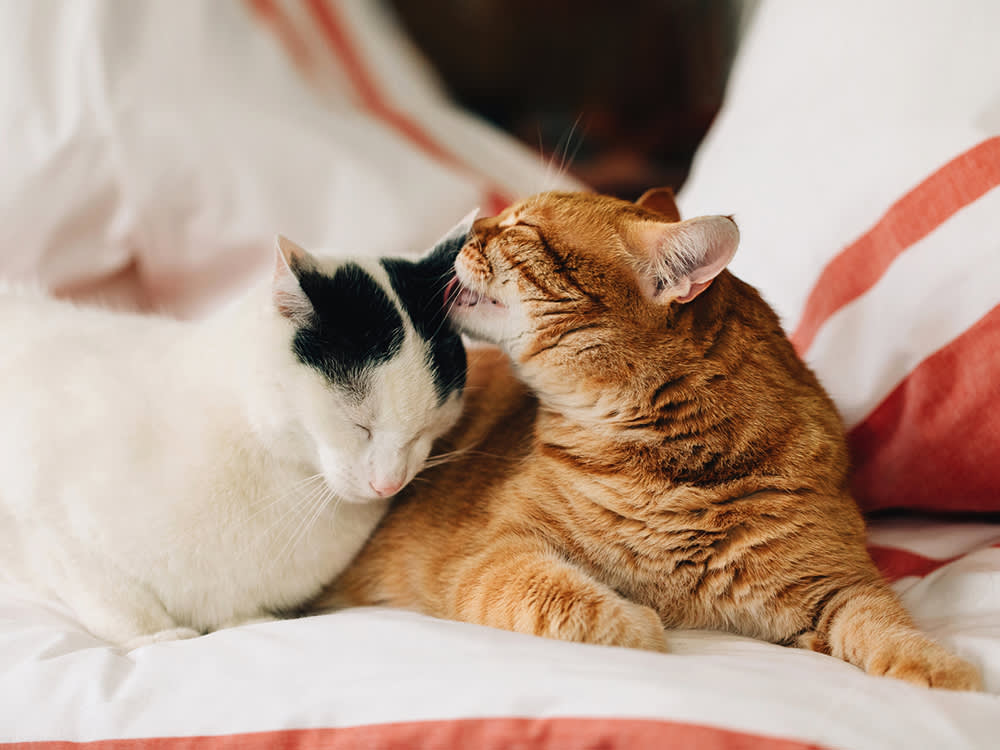by Kelly Villa, | May 23, 2024

ljubaphoto / iStock
Yes, cats can exhibit symptoms of “littermate syndrome,” a condition in which kittens from the same litter will not bond with others, remain dependent upon each other, and are fearful of other cats and/or humans. It’s important to note, however, that veterinary behaviorists do not recognize the condition as an official syndrome, and therefore, the behaviors that many identify as littermate syndrome likely have other causes — namely, poor socialization.
In this article:
How can you avoid littermate syndrome in cats?
“Littermate syndrome” is not a foregone conclusion when adopting littermates, but is a phenomenon more likely the result of poor socialization. It’s ideal to socialize kittens with other animals and humans as young as four to eight weeks old. If kittens experience stress during this period, they are more likely to have trouble bonding with others or have behavioral issues — whether they remain with a littermate or not.
Read this related article on Kinship

Does Your Pet Have Littermate Syndrome?
If you adopted siblings you could be dealing with littermate syndrome. Here’s everything you need to know.
The American Veterinary Medical Association suggests new cat parents create a socialization plan that includes exposure to animals, people, environments, and activities that will be part of their new life. Providing praise, play, and treats to reward healthy socialization is key.
Should you adopt two cats from the same litter?
While many dog trainers and shelters discourage adopting puppy siblings, cat experts actually recommend families adopt bonded littermates, because they transition into their new families and lives more smoothly than unrelated cats and can learn from each other. As long as both kittens are well socialized, they can benefit from the companionship and comfort of living together.

Kelly Villa
Kelly Villa is a freelance writer and contributor to various pet publications.
Related articles

Rehome
How Do I Find a Home For My Cat?

Behavior & Training
How Do You Calm an Anxious Cat?

Behavior & Training
How Do I Get My Cats To Like Each Other?

Behavior & Training
How Do I Get My Older Cat to Like My New Kitten?

Adoption Advice
How to Welcome a New Cat? Your New Cat’s First Day
Adopting a new cat? Learn more about how you should introduce your adopted firend to their new home.

Behavior & Training
How Much Space Does a Cat Need to Be Happy?
Cats may not need a lot of space, but it’s what you do with it that matters. Read on for tips to keep your cat mentally and physically at ease.

Behavior & Training
How to Get a Cat to Like You (and Eventually Love You)
Is your new cat giving you the cold shoulder? Here’s how to get them to warm up.